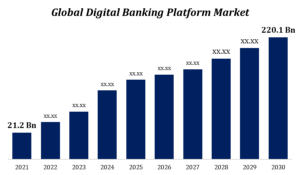Artificial Intelligence in Finance
In the ever-evolving realm of finance, a groundbreaking force is reshaping traditional paradigms and catalyzing unprecedented advancements – Artificial Intelligence (AI). This blog delves into the profound impact of AI in the financial sector, uncovering the innovative applications, transformative potential, and the evolving landscape of intelligent finance.
Understanding Artificial Intelligence in Finance:
AI, the branch of computer science that aims to create machines capable of intelligent behavior, is making waves in the financial industry. From automating processes to enhancing decision-making, AI is proving to be a powerful tool for financial institutions seeking to stay ahead in a dynamic and data-driven world.
Key Applications of AI in Finance:
- Algorithmic Trading: AI algorithms analyze vast amounts of market data at speeds incomprehensible to human traders. This enables algorithmic trading systems to execute buy or sell orders with precision, optimizing trading strategies and responding to market fluctuations in real-time.
- Robo-Advisors: Robo-advisors leverage AI to provide automated, algorithm-driven financial planning services with minimal human intervention. These platforms offer personalized investment advice, portfolio management, and wealth management solutions, catering to a broader range of investors.
- Credit Scoring and Risk Assessment: AI algorithms analyze an individual’s credit history, transaction patterns, and other relevant data to generate more accurate credit scores. This enhances the precision of risk assessments, allowing financial institutions to make informed lending decisions.
- Fraud Detection and Security: AI-powered systems excel at detecting unusual patterns and anomalies in transactions. By continuously analyzing vast datasets, these systems identify potential fraud in real-time, bolstering the security of financial transactions.
- Customer Service and Chatbots: AI-driven chatbots provide efficient and personalized customer service. These virtual assistants can handle routine inquiries, offer product information, and even assist in dispute resolution, enhancing the overall customer experience.
- Predictive Analytics: AI enables financial institutions to harness predictive analytics, forecasting future market trends, customer behaviors, and economic conditions. This valuable insight assists in strategic decision-making and risk management.
- Natural Language Processing (NLP): NLP allows AI systems to understand and interpret human language, facilitating sentiment analysis, customer feedback analysis, and automated document processing. This enhances communication and decision-making processes within financial organizations.
Challenges and Considerations:
While the integration of AI in finance brings numerous benefits, it also presents challenges. Concerns related to data privacy, ethical considerations in algorithmic decision-making, and the potential for bias in AI models underscore the importance of responsible and transparent AI implementation.
The Future Landscape:
As AI continues to advance, the future of finance holds exciting possibilities. The synergy between human intelligence and machine learning promises a financial ecosystem that is not only efficient and data-driven but also adaptive to the evolving needs of consumers and businesses.


































